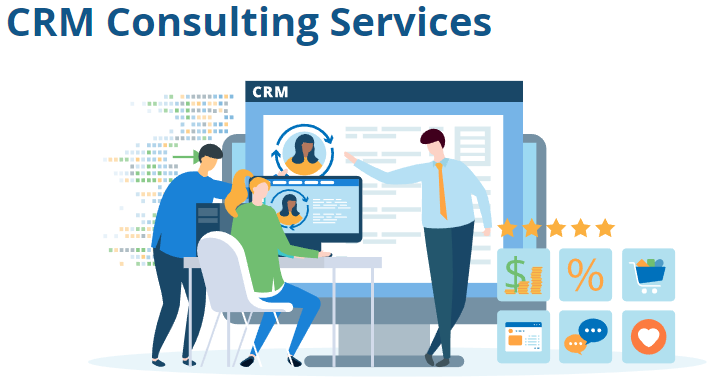
The United Kingdom has a process called company formation. It involves creating and incorporating a company. This is also known by the term company registration. Company formation is also used in the Republic of Ireland. There are several types of business formation available, such as partnerships, sole proprietorships and corporations. You will need to select the one that is most appropriate for your industry and needs.
Corporations
A corporation is a legal entity that allows owners to hold stock in the company. These shares may be transferred among owners or sold. While shareholders are not personally liable for the company's assets and liabilities, they do have a duty of care. Failure to perform this duty could result in personal liability. Corporations are beneficial for businesses seeking to raise capital and also to attract employees. They can be a good choice for medium and high-risk enterprises.
Corporations can be legal entities that have the ability to enter into contracts, sue others, own assets, pay federal and state taxes and borrow money from financial institutions. You must file paperwork with the state in which you plan to establish a corporation. If you plan to operate outside your state, you may face additional paperwork.
Partnerships
A partnership is any type of business owned by two or more people. Although partnerships do not constitute legal business entities but are registered with a state, they offer limited liability protection. In addition to this, there are also a number of licensing requirements. For example, partnerships must obtain an IRS employee identification code. You may also need it to get a building permit or zoning permit. Partnerships may also need to pay additional taxes, such self-employment or employer withholdings.

Partnerships can be easier to set up than other types of business structure. Because they are not subject to the same rules and regulations as corporations, they are often more tax-friendly. But they might not be the best option for all business types. Partnerships are used most frequently for professional groups. This includes lawyers, architects and doctors.
LLCs
An LLC can be formed in many ways. The first step in forming an LLC is to complete the Articles of Organization. These documents identify the county where the company's registered. New York County generally refers to New York City's boroughs. However, some cities have both a county and a borough, so it's important to choose the correct county for your business. The next step is to name a Secretary of state as the LLC's agent in service of process. This will mean that the Secretary of state will receive any papers that acquire jurisdiction over the LLC.
You must get a state certificate to prove that the LLC is officially registered in your state during the process of business creation. This certificate will allow you to get your business tax ID numbers and open a bank accounts for it. An operating agreement should be prepared. It contains all the financial and legal details about your business. This agreement can contain information such as the members' exits and capital contributions. Include all relevant information, including names and contact information for all members.
Sole proprietorships
Solo proprietorships are a popular choice for small-time business owners. This business structure allows the owner to have complete control of the company. Additionally, it is inexpensive, and the owner isn't subject to the meetings and formalities of a corporation or limited liability company.
Sole proprietorships are simple to establish and dismantle. Many small businesses are started as sole proprietorships. They then move to a limited liability entity (LLC), or corporation. However, sole proprietorships do not have government protection. The owner has all the company's liabilities and obligations. Solo proprietorships can be very affordable and simple to start. This makes them attractive for people with low budgets.

Limited partnerships
Limited partnerships can be a good option when you are starting a new business. They are able to protect the general partners and ensure that they don't become personally liable for the company's debts. In addition, limited partners can contribute startup capital while the general partners take the greater risk of the business's success. A limited partnership requires two to three partners and must be registered with a Secretary of State's Office. To form a limited partnership, the partners must submit a formal document called "certificates of limited partnerships". This document contains the business name, business agent name, and general partner name. The next step is to write an internal partnership arrangement that defines the roles of each partner, as well the limited partnership’s profits and losses.
Another benefit of a limited partnership is that it is tax-efficient. General partners must pay selfemployment taxes on any profits they make. Limited partners do this without being subject to the same requirements. Since limited partners are not involved in the day-to-day management of the business, this tax savings can be very valuable.
FAQ
What can I count on from my consultant to help me?
Once you select your consultant, you should expect to hear back from them within a few days. They will ask you for information about your business, including the mission, goals, products, and budget. After receiving this information, they will prepare a proposal outlining their scope of work, estimated timeline, fees, deliverables and milestones.
If all goes well, the parties will then negotiate a written agreement. The type and content of the contract will vary depending on whether the relationship is employer-employee/employer-independent contractor.
If everything goes smoothly, the consultant can begin work immediately. He/she will have immediate access to your internal documents, resources, and you'll be able to access his/her skillset and knowledge.
Don't assume that someone who is a consultant knows everything. It takes practice, effort and practice in order to be an expert in any area you consult. Your consultant should not assume that they know everything about you business.
Do I have to pay tax on consulting income
Yes. Taxes will be charged on consulting profits. This amount will depend on how much you earn each year.
If you're self employed, you can deduct expenses beyond your salary.
However, you cannot deduct interest payments from loans, vehicle repairs, or the cost for equipment.
You can only claim back 25% of your expenses if you earn less than PS10,000 a year.
However, even if your earnings exceed this threshold you may still be subject to tax depending on whether or not you are a contractor or an employee.
The tax system for employees is PAYE (pay-as-you earn), while VAT is applied to contractors.
What industries use consultants
There are many types and styles of consultants. There are many types of consultants. Some specialize in one type of business, while others can handle multiple areas.
Some consultants are only available to private companies while others work with large corporations.
Some consultants are available to help businesses around the world.
What skills do I need for consulting?
Consultants should be able to communicate effectively and have excellent analytical skills. This is because you could be asked questions or not know what you are doing. You need to be able to manage people quickly and solve problems efficiently.
Also, you must have great communication skills. Most clients expect an answer within 24hrs. If they don’t hear back, they assume that you aren’t interested. It is vital to inform them and make sure that they are fully informed.
Who hires consultants
Many organizations hire consultants to assist with projects. These include small businesses, large companies, government agencies and non-profits.
While some consultants work for these companies, others are freelancers. The process of hiring depends on the size and complexity the project.
Before you can hire a consultant, there will be several rounds of interviews.
Statistics
- Over 50% of consultants get their first consulting client through a referral from their network. (consultingsuccess.com)
- WHY choose me: Why your ideal client should choose you (ex: 10 years of experience and 6-week program has helped over 20 clients boost their sales by an average of 33% in 6 months). (consultingsuccess.com)
- Over 62% of consultants were dissatisfied with their former jobs before starting their consulting business. (consultingsuccess.com)
- 67% of consultants start their consulting businesses after quitting their jobs, while 33% start while they're still at their jobs. (consultingsuccess.com)
- According to IBISWorld, revenues in the consulting industry will exceed $261 billion in 2020. (nerdwallet.com)
External Links
How To
How Do I Find A Good Consultant?
Understanding your needs is the first step to finding the right consultant. Are you looking for them to improve the performance of your website? You may want them optimizing your site to rank higher for search engines. Maybe you want someone to check on your current hosting provider and tell you if it is in need of improvement. You should know the type of services that you require before you start looking at other companies. Many consultants claim to be able to provide these services. However, only a handful of them actually deliver on their promises. How do you choose the right consultant? Here are some things to consider when picking a consultant:
-
Refer to others. This is the best way to select a consultant. It's not a good idea to hire someone you haven't heard of, as you will likely end up paying too much. But you also don't want to work with someone whose reputation isn't solid. If you are lucky enough to be referred by people you trust, that's awesome! But even if you don't, you still might be able to check reviews online. Find testimonials and case study examples from customers who have used your product.
-
Ask around. Many people are unaware that hiring a consultant could make a difference. They believe that because they're doing well, they don’t need to make any changes. This is often false. Even if you are seeing great results, it is likely that you have not been keeping up to date with technology and trends. You'll lose out on the opportunities to grow your company if you rely on old methods. It's always worth asking for referrals to find good consultants.
-
Be sure to check their credentials. You need to verify their qualifications when you are searching for a consultant. It doesn't matter if they are qualified for the task or not; make sure they are knowledgeable in the field.
-
Find out about the types of projects they specialize. You might think that everyone can handle all projects, but this is false. Certain areas may require special training or education. A developer who is a specialist in Drupal would not be able to help you build a WordPress theme. The same goes for graphic design, programming languages, etc. Ask them what types of projects they are most familiar with.
-
Be aware of their fees. You don't want a consultant who charges too much. However, you don't need to pay too much. Consultants come in all shapes and sizes. There are some that charge an hourly fee, while others may bill per job. You can save money by knowing upfront exactly what you will be paying.
-
Understand what they offer. Are they providing free consultations? Do they offer advice on setting up your system? Do they promise that your site will rank higher once you have worked with them? If you don’t like the information you receive during your consultation, you can cancel it without penalty.
-
Find out if the company offers discounts for several months or years. Many consultants offer discounted pricing for extended periods of time. Even though you do not necessarily have to commit to a whole year of service, you might still be able to benefit from any specials they offer.